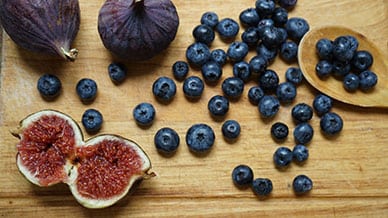A recent study, published in the Mayo Clinic Proceedings examined the relationship between blood calcium levels and the risk of sudden cardiac arrest.
Sudden cardiac arrest (SCA) is defined as when the heart suddenly stops beating due to a malfunction in the heart’s electrical activity. According to the American Heart Association, approximately 350,000 people experience an out-of-hospital SCA each year in the United States alone. Around 90 percent of these SCAs result in death.
Newly Discovered Link Between Low Calcium and Cardiac Arrest
 Researchers gathered data from the Oregon Sudden Unexpected Death Study to analyze for their purposes. They identified 267 people who suffered SCA between 2002 and 2015, in addition to 445 healthy controls. These individuals’ blood calcium levels had been measured before their death. The scientists found that the risk of SCA is 2.3 times higher for people who have the lowest blood calcium levels, compared to people with normal levels. This correlation remained even after accounting for other confounding risk factors. However, the reason for this link between calcium and cardiac arrest is not yet known; further research is needed.
Researchers gathered data from the Oregon Sudden Unexpected Death Study to analyze for their purposes. They identified 267 people who suffered SCA between 2002 and 2015, in addition to 445 healthy controls. These individuals’ blood calcium levels had been measured before their death. The scientists found that the risk of SCA is 2.3 times higher for people who have the lowest blood calcium levels, compared to people with normal levels. This correlation remained even after accounting for other confounding risk factors. However, the reason for this link between calcium and cardiac arrest is not yet known; further research is needed.
Coronary heart disease has been considered to be the primary cause for sudden cardiac arrest. Yet, 50 percent of women and 70 percent of men who have died from SCA had no history of heart disease. This, combined with the newly found link between calcium levels and SCA, points to an urgent need for researchers to identify other cardiac arrest risk factors in order to better prevent these deaths.
SCA, in turn, is associated with other major medical conditions. People who experience a sudden cardiac arrest are more likely to suffer from diabetes, chronic kidney disease and chronic obstructive pulmonary disease.
The Importance of Proper Calcium Intake
Calcium is the most abundant mineral in the human body. Around 99 percent of all the calcium in the body is found in the bones and teeth, leading calcium to be most strongly associated with bone health. Indeed, proper calcium consumption is very necessary for strong bones. A failure to get enough of this essential mineral can result in low bone mineral density, which can lead to osteoporosis. However, calcium is also necessary for many other systems of the body. Nerve and muscle function, blood vessel dilation and contraction and hormone secretion also require sufficient calcium.
Certain groups of people are at a high risk for not getting enough calcium. Those who suffer from lactose intolerance are likely candidates for this as they do not consume high-calcium dairy products. People who follow a vegan diet may also be at risk for calcium deficiency because a vegan diet often has high levels of the plant-based phytic and oxalic acids, which impair calcium absorption in the gut. A high intake of sodium, caffeine, alcohol or protein (for example, as with bodybuilders) can also put you at a higher risk for calcium deficiency.
Adults over the age of 50 are a major group that should watch their calcium intake especially closely; this is even more true for older women, as estrogen levels plummet during this period of a woman’s life and estrogen is an important hormone for maintaining healthy bone mineral density.
Certain medical disorders can interfere with the absorption of calcium, namely, bowel and digestive disorders. Those who take corticosteroid medication for long periods of time can also be at risk. Some other risk factors for low calcium levels (or high osteoporosis risk) include smoking cigarettes, being physically inactive and having a family history of osteoporosis.
Getting Enough Calcium
Of course, everyone should make sure to get enough calcium, but these are the groups that need to pay especially close attention. Obviously, the best way to consume enough calcium is by eating a healthy diet. Calcium-rich foods include dairy, dark leafy vegetables, fatty fish and any food that is calcium-fortified. You also need sufficient vitamin D in order for your body to absorb and use the calcium properly. You can get vitamin D in fatty fish, egg yolk, fortified dairy products and mushrooms. Furthermore, eating a high-fiber diet is beneficial for calcium levels because dietary fiber slows down digestion, giving your body more time to absorb the calcium in your food. People who get plenty of calcium enjoy a lowered risk of cancer, high blood pressure and diabetes.
However, for some people trying to eat plenty of calcium-rich foods may still not be enough. Those who fall into the category of someone who has a high risk for calcium deficiency (lactose intolerant, vegan, high intake of sodium, caffeine, alcohol or protein), or the category of those who need more calcium than average (those at risk of osteoporosis, older adults), should strongly consider taking a dietary supplement with calcium in addition to eating a nutritious diet. This way, calcium intake is convenient and more predictable.
Adults should get at least 1,000 milligrams of calcium every day, including the calcium you get from your diet. Women over the age of 50 and men over the age of 71 should consume at least 1,200 milligrams total daily.
Talk to your doctor before taking a calcium supplement if you are currently taking:
- antibiotics
- bisphosphonates
- blood pressure medication
- calcium channel blockers
- synthetic thyroid hormone
 Purple vegetables and fruits appear to be effective at improving good HDL cholesterol due to unique antioxidants called anthocyanins. Extracts of anthocyanin have been shown in studies to fight free radical damage and possibly
Purple vegetables and fruits appear to be effective at improving good HDL cholesterol due to unique antioxidants called anthocyanins. Extracts of anthocyanin have been shown in studies to fight free radical damage and possibly  Some studies have indicated that green tea and tea extract can help promote healthier LDL cholesterol levels as well as healthy blood sugar and blood pressure, other markers of heart health, thanks to the high concentration of antioxidant polyphenols in tea. One study published in 2003 found that people with moderately high cholesterol who took a tea extract for 12 weeks experienced a
Some studies have indicated that green tea and tea extract can help promote healthier LDL cholesterol levels as well as healthy blood sugar and blood pressure, other markers of heart health, thanks to the high concentration of antioxidant polyphenols in tea. One study published in 2003 found that people with moderately high cholesterol who took a tea extract for 12 weeks experienced a  While people in the West are less susceptible to communicable diseases and infections than ever before, several other diseases are increasing at an alarming rate. Heart disease is one of these illnesses. A great deal of heart disease is caused by coronary artery disease, an illness in which the arteries that supply the heart become hardened, blocked, or otherwise unable to pass blood. The result is that the heart does not have the oxygen and nutrients it needs to function and becomes increasingly diseased over time. This eventually can lead to angina, a heart attack or a stroke.
While people in the West are less susceptible to communicable diseases and infections than ever before, several other diseases are increasing at an alarming rate. Heart disease is one of these illnesses. A great deal of heart disease is caused by coronary artery disease, an illness in which the arteries that supply the heart become hardened, blocked, or otherwise unable to pass blood. The result is that the heart does not have the oxygen and nutrients it needs to function and becomes increasingly diseased over time. This eventually can lead to angina, a heart attack or a stroke. There is still much research to be done on the link between irons levels and heart disease. However, it currently appears that getting enough iron, and getting enough of the right kind of iron, may help to prevent damage to coronary arteries. There are several
There is still much research to be done on the link between irons levels and heart disease. However, it currently appears that getting enough iron, and getting enough of the right kind of iron, may help to prevent damage to coronary arteries. There are several  Lutein is a compound that imparts a yellowish color to certain foods. Dietary sources of lutein include broccoli, carrots, corn, kale, oranges, peas, spinach, yellow and orange peppers and egg yolk. Recently, researchers at Linköping University in Sweden published a study in the journal Atherosclerosis that suggests
Lutein is a compound that imparts a yellowish color to certain foods. Dietary sources of lutein include broccoli, carrots, corn, kale, oranges, peas, spinach, yellow and orange peppers and egg yolk. Recently, researchers at Linköping University in Sweden published a study in the journal Atherosclerosis that suggests  Good sources of beta-carotene include:
Good sources of beta-carotene include: Magnesium is a mineral that is
Magnesium is a mineral that is  There are several ways that taking in plenty of
There are several ways that taking in plenty of  There are several ways to ensure that you are
There are several ways to ensure that you are